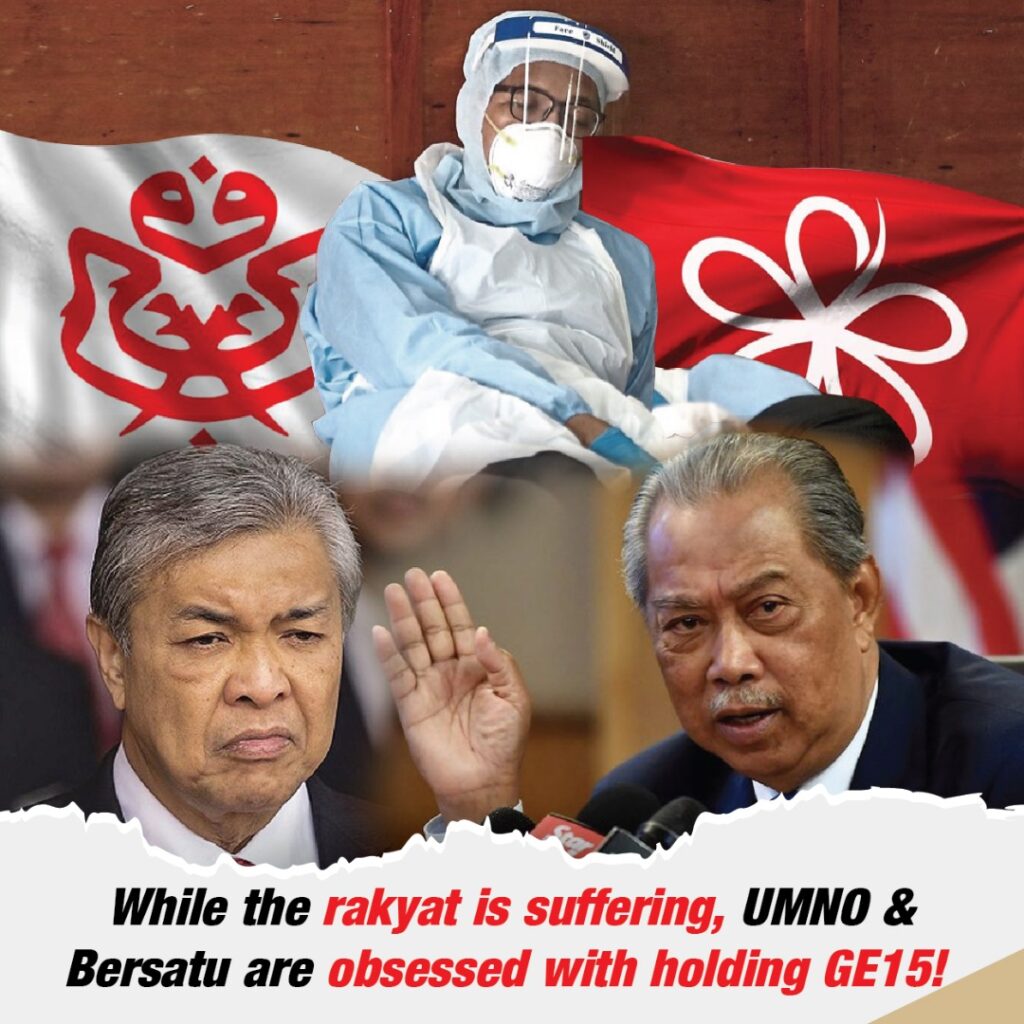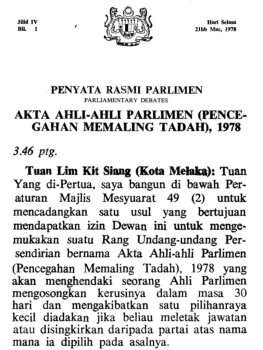Joint press statement by Dr Dzulkefly Ahmad, Dr Lee Boon Chye, Yeo Bee Yin and Isnaraissah Munirah Majilis on 8 January 2021:
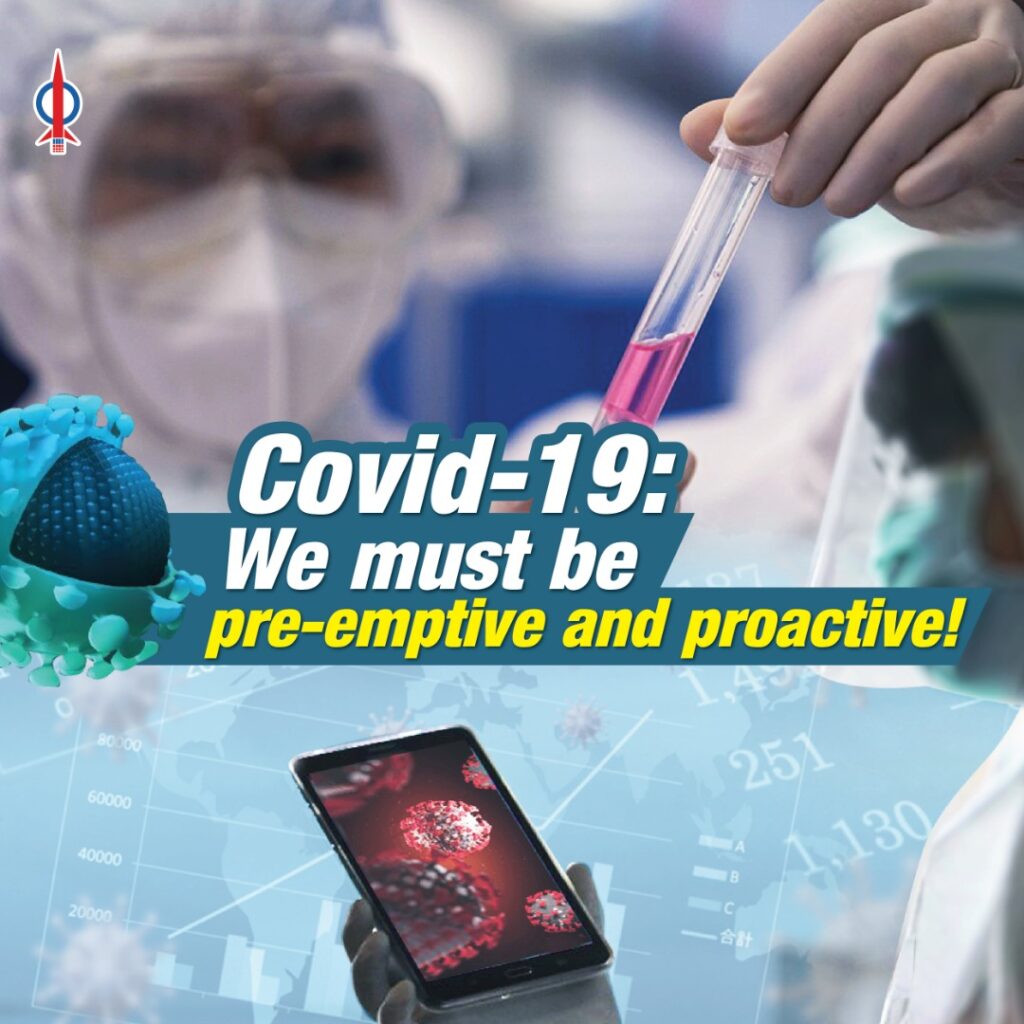
Malaysia sees yet another Covid-19 positive record-breaking yesterday at 3,027 cases. The government seems to have lost control of the pandemic outbreak with our health system at the brink of collapse and front-liners have reportedly burnt-out. Ironically, just the night before, the ruling parties – UMNO and PPBM, have had their central committee meeting, discussing not about the pandemic but their political survival! There must be moratorium of politicking at this time of national tragedy.
We strongly believe that the government must heed the call of many medical experts to embark on mass testing exercise, starting with screening all high-risk areas such as foreign workers living quarters, prisons and the community living near to them.
According to the parliamentary reply, the government facilities can do PCR tests of close to 19,489 tests per day (16,670 tests under Ministry of Health and 2,819 tests under Ministry of Defence) while the private sector can do 59,485 tests per day – that is a national total testing capacity of close to 80,000 PCR test a day. But if we dispute over the exorbitant cost of doing this screening, please resort to the inexpensive and faster turn-around time RTK Antigen tests, which arguably is more appropriate for the purpose of mass screening. Be that as it may, we are undoubtedly capable and have the capacity, to do mass testing for targeted areas.
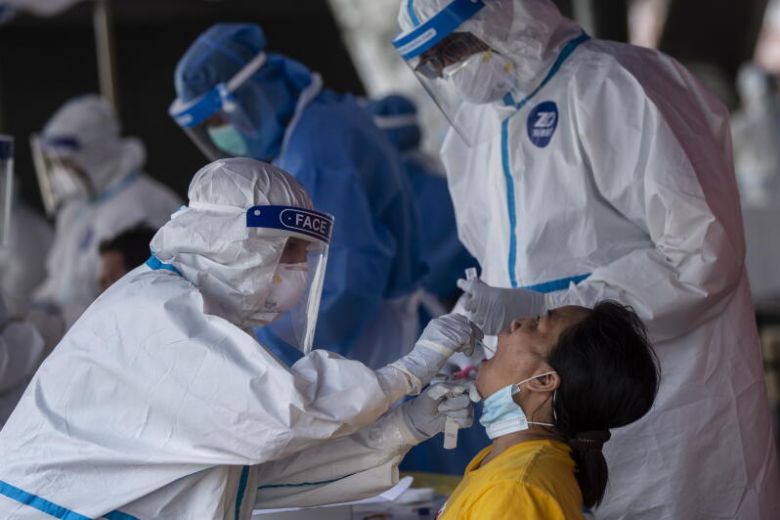
Since many positive cases are asymptomatic (~80%), mass testing becomes very important to enable early isolation to take place and prevent further spreading and ‘spillovers’ into the community. Using a combination of epidemiological data and AI, a risk-ranking algorthms are achieved of community particularly those associated to big clusters. For example, Selcare, a Selangor government GLC, has been running a series of community testing in areas close to factories in Klang that are experiencing outbreak.
For example, in Taman Bayu Perdana, two community testings have been organized: the first one on 23 December 2020 – out of the 915 tested, 63 are positive (60 locals and 3 foreigners) and the second one on 3 January – from the 75% sample analyzed so far, out of 1,021 samples, 45 are positive (33 locals and 12 foreigners). This represents 4.4% Positivity Rate. Remember, WHO recommends a Positivity Rate of <5% as a threshold of controlled community spread. Admitttedly, of the 8 mass community screening done, there were others ranging from ~ 7% to 25%.
Indeed, as we do more testings, the number of positive cases will increase temporarily. But this is no time to hide our head in the sand.
We must face it head on, find all the positive cases in the community then isolate them!
The government must invest in doing mass testing because the human and economic cost that we have to pay later, are hugely in excess of the cost of doing mass testing.
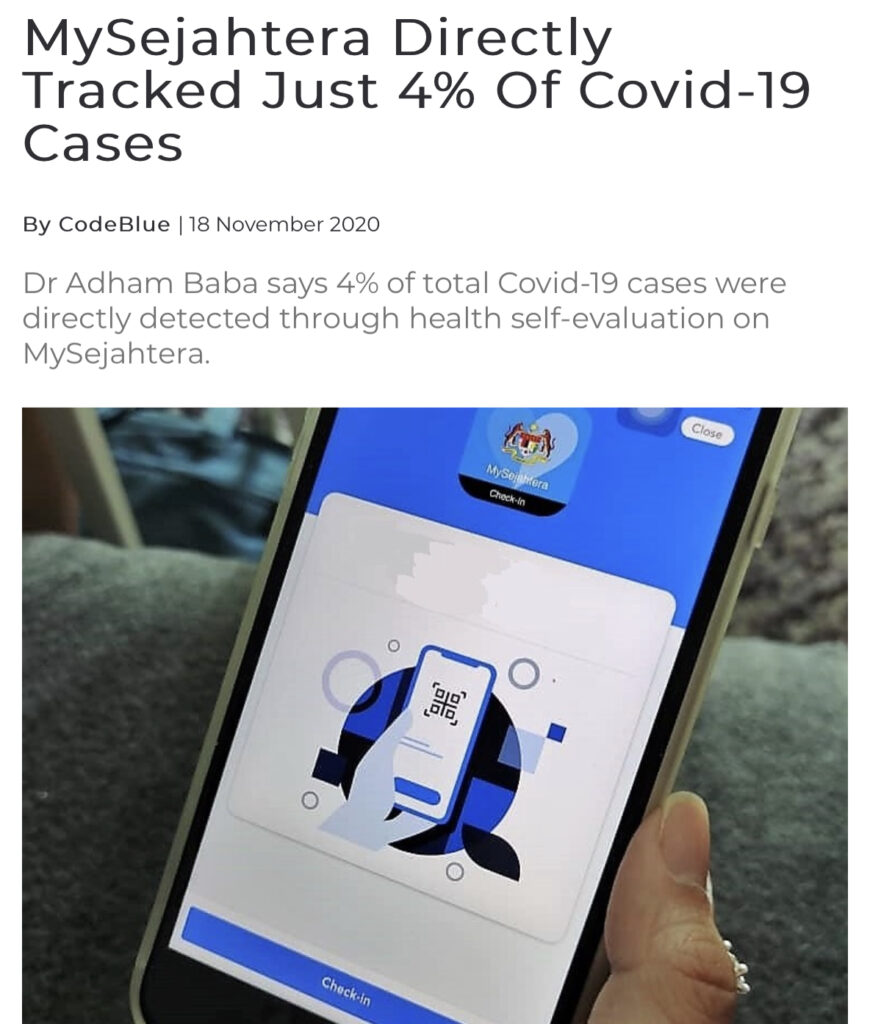
In addition, we believe that there is a need for complete overhaul of the contact tracing system.
It was reported that MySejathera has only directly detected 4% of total reported Covid-19 cases in Malaysia, indicating that the government may still primarily rely on manual contact tracing, i.e asking the positive patients who their close contacts are and test accordingly. It also shows that the government has not fully (or at all) leverage on big data analytics using the data collected through MySejahtera and combine it with other data available in government system as well as public data that can be mined, such as posts with meta-data and tags used on social media etc, and develop a more sophisticated way of tracing the positive cases in the community.
We must keep on innovating and not sit complacently on our early successes and laurels.
We’ve long overtaken China, the global epicentre, with 125,000 cases with over 515 deaths! We must act pre-emptively and proactively, to safeguard and defend our green zones and mitigate further cases and eventually deaths, through preventing outbreaks on ignition sites in factories, work places and construction sites settings, especially in urbanised Selangor, Penang and Johor.
With that, we call upon for wider deployment of science and best practices of public health interventions, with excellent understandings in government response for a ‘whole of government’ and a ‘whole of society’ approach in managing the worsening 3rd-Wave crisis of the Covid-19 pandemic.
- Dr Dzulkefly Ahmad (MP Kuala Selangor, Former Minister of Health)
- Dr Lee Boon Chye (MP Gopeng, Former Deputy Minister of Health)
- Yeo Bee Yin (MP Bakri, Former Minister of Energy, Science, Technology, Environment and Climate Change)
- Isnaraissah Munirah Majilis (MP Kota Belud, Former Deputy Minister of Energy, Science, Technology, Environment and Climate Change)

